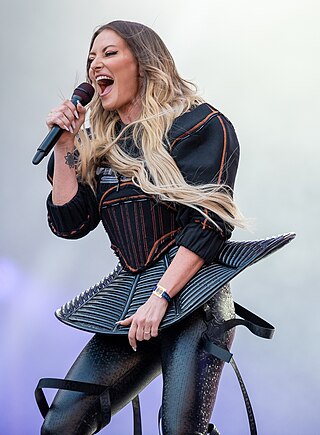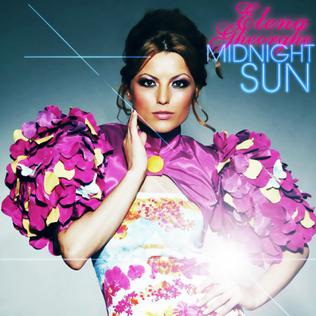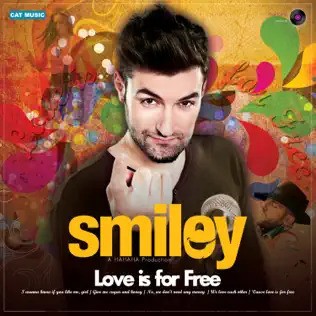
Luisa Ionela Luca, known professionally as Minelli, is a Romanian singer and songwriter. Upon being part of the girl group Wassabi from 2006 to 2009, she rose to fame with her 2019 single "Mariola", which topped the Romanian Airplay 100 chart. Subsequently, in 2021, "Rampampam" became a hit in multiple territories.
Morandi was a Romanian eurodance music group composed of Randi and Marius Moga.

Akcent is a Romanian dance pop group whose members sing in Romanian, English and Spanish. Their name originated as a wordplay on accent. Originally a duo, it consisted of Adrian Sînă and Ramona Barta. They released their debut album Senzatzia in 2000. Except for the first track, "Ultima vara", which received some airplay, the album was a commercial failure and the duo disbanded shortly after. Sînă brought Marius Nedelcu, Mihai Gruia and Sorin Brotnei into the group, changing it from a duo to a boyband in 2001. They came to prominence with the single "Ți-am promis" in their native Romania.

Marius Moga is a Romanian singer, songwriter, producer and television personality. He writes and produces music in various styles and genres, especially pop, R&B and club music. In 2011, he became the judge and mentor of the reality singing show Vocea României.

Delia Matache, commonly referred to as simply Delia, is a Romanian singer and television personality. She was part of the pop group N&D (1999–2003). As solo artist, she has established herself as one of the most successful Romanian artists, releasing multiple hit singles on native record charts.

Elena Alexandra Apostoleanu, known professionally as Inna, is a Romanian singer. Born in Mangalia and raised in Neptun, she studied political science at Ovidius University before meeting the Romanian trio Play & Win and pursuing a music career. She adopted the stage name "Alessandra" and a pop-rock style in 2008; later that year, she changed her stage name to "Inna" and began releasing house and popcorn music. "Hot" (2008), her debut single, was a commercial success worldwide and topped the Romanian and Billboard's Hot Dance Airplay chart, among others. Her debut studio album of the same name followed in August 2009 and was certified Gold and Platinum. It featured several other successful singles in Europe, including "Amazing" (2009), the singer's second number-one single in Romania.

Romanian singer Inna has released nine studio albums, three compilations, 62 singles and 51 promotional singles. Her YouTube channel surpassed three billion total views as of May 2019. 24 of her singles have reached the top ten in Romania, with "Hot", "Amazing", "Diggy Down", "Bebe", "Up" and "Tare" topping the country's singles chart in 2008, 2009, 2015, 2020, 2021 and 2022, respectively. With global album sales of four million copies from her first three studio albums, Inna is the best-selling Romanian artist.

"Midnight Sun" is a song recorded by the Romanian female singer Elena Gheorghe. The song was recorded in summer 2010 and premiered on November 15, 2010, on Gheorghe's official YouTube channel. It was released under Cat Music exclusively in Romania. The song has more house influences than the previous number-one hit "Disco Romancing". It was sent to the mainstream radio stations in late November and it is promoted as the second single taken from Gheorghe's album entitled Disco Romancing. Lyrically, the song describes the shiver a millionaire wannabe guy gets when he sees Elena dancing. The song had its official radio premiere on the Romanian National Day, at radio ZU, though it premiered on Kiss FM a week earlier. Elena performed "Midnight Sun" live, on December 31, during a New Year special show, held by Pro TV. The music video was already shot in Bucharest and it was released via YouTube on May 13, 2011. The video features many special effects as well as the track listing for Gheorghe's upcoming album. The song peaked at number-one the Radio Top 50 and charted within the top ten in two other Romanian charts. In the official Romanian Top 100 it peaked at number-ten, thus making it Elena's fifth song to enter the top ten in Romania, after "Soarele meu", "Vocea ta", "The Balkan Girls" and "Disco Romancing". The song was performed at many dates throughout Romania.

"Zaleilah" is a song by Romanian band Mandinga for their fifth studio album, Club de Mandinga (2012). It was written by Costi Ioniță along with band lead singer Elena Ionescu and member Omar Secada. Produced by Ioniță and Dimitriu Silviu, it was released on 16 September 2011. Musically, "Zaleilah" has been described as Latin-influenced, with other inspirations including Balkan, Cuban, Gypsy and salsa music. A bilingual love song performed in English and Spanish language, its instrumentation consists of a bagpipe, marching drums, accordions and trumpets. Reviewers noticed similarities between "Zaleilah" and "Waka Waka " (2010) by Colombian singer Shakira and "Zou Bisou Bisou" (1964).

Andreea Bănică (Romanian pronunciation:[anˈdree̯abəˈnikə] is a Romanian singer and songwriter. She was part of the girl groups Exotic and Blondy. In 2005, Bănică started a solo career and became one of Romania's most successful pop artists, with 2 number ones and 15 Top20 singles, as well as hit songs like "Love in Brasil", "Samba", "Hooky Song", "Sexy", "Shining Heart" and "Rain in July".

Andrei Tiberiu Maria, better known by his stage name Smiley, is a Romanian singer, songwriter, record producer, actor and television presenter, from Pitești. He was part of the pop groups Simplu (2001–2011) and Radio Killer (2009–2015). As a solo artist, Smiley started in 2007 and has become one of Romania's biggest pop artists, archiving 14 number ones and more than 30 Top20 singles.

Alexandra Irina Măruță, better known by her stage name Andra, is a Romanian singer, songwriter and television personality. Andra began her career at the age of seven, where she had her first performance in TVR's musical competition Tip Top Minitop, singing "I Will Always Love You" by Whitney Houston. In 2001, at 14 years old, Andra released her first single, "În noapte mă trezesc". In both 2004 and 2007, she attempted to represent Romania at the Eurovision Song Contest with the songs "Just a Little Love" and "Dracula, My Love", respectively.

Carla's Dreams is a music project from Moldova, formed in 2012 in Chișinău. The band is composed of an anonymous group of singers and composers who perform their songs in Romanian, English and Russian. Their lead singer, codenamed Sergiu, and his bandmates all hide their identity in public appearances by wearing hooded sweatshirts, sunglasses and a face mask made of makeup. Carla's Dreams rose to prominence in Moldova and Romania upon releasing the single "P.O.H.U.I." with Inna in 2013, and have since then issued nine singles that went on to be number-one singles in Romania.

Larisa Roxana Giurgiu, known professionally as Roxen, is a Romanian singer who rose to prominence after being featured on Romanian producer Sickotoy's "You Don't Love Me" (2019), which reached number three in Romania and received radio airplay in several other countries. The singer's following singles, "Ce-ți cântă dragostea" and "Spune-mi", eventually peaked atop the national chart. Roxen was scheduled to represent Romania in the Eurovision Song Contest 2020 with the song "Alcohol You" before the event's coronavirus disease 2019 (COVID-19)-related cancellation. Instead, Roxen was internally selected as the country's representative for the 2021 contest with the song "Amnesia", but failed to progress from the first semi-final, finishing in 12th place.
Diana Alexandra Olteanu, known professionally as Diana V, is a Romanian singer and songwriter signed by Global Records. In February 2020, she was announced as one of the three artists shortlisted to represent Romania at the Eurovision Song Contest 2020 as part of the label's collaboration with broadcaster Romanian Television (TVR). Her debut single, "Bad Girls Get Lonely Too", was released later that month and reached number 67 on the local Airplay 100 chart.

"Up" is a song recorded by Romanian singer Inna. Global Records sent it to Romanian radio stations on 21 October 2021. Another version of the track with Jamaican rapper Sean Paul was issued on 17 December 2021. "Up" was written by Inna, Sebastian Barac, Marcel Botezan, Alex Cotoi and Minelli, while the production was handled by Barac, Botezan and Cotoi; Paul received additional writing and production credits on his version. "Up" is a dancehall-influenced pop song, with its lyrics describing a healing love.

"Clap Clap" is a song by Romanian duo Gran Error, Albanian singer Elvana Gjata and Romanian singer Antonia. The song was produced by Achi, Marcel Botezan and Sebastian Barac, who served as co-writers with Iraida. It was released as a single for digital download and streaming by Global Records on 8 July 2022. An English and Spanish-language techno-inspired song, it encourages to be bold and transparent, and to let go of anything that stops their freedom. The song received positive receptions from a few music critics, who applauded the music and sound. It reached the record charts at number one in Albania, number three in Romania and number 32 in Poland. An accompanying music video was directed by Alexandru Muresan and Elena Maria Popescu, and uploaded to Gjata's YouTube channel alongside the single release. Filmed in Bucharest, Romania, the video finds the artists and several other people dancing and partying in a karting arena and gaming center.

"Love is for Free" is a single by Romanian singer Smiley from the album Plec pe Marte released on May 28, 2010. The song peaked at number one in the Romania Top 20 chart, spending ten weeks there, and seven weeks in the most-broadcast songs on Romanian radio stations in the 2010s. The song was also featured in the Nielsen Music Control and Uniunea Producătorilor de Fonograme din România (UPFR) top 100 number ones for six weeks between November 29, 2010 and January 17, 2011.
















